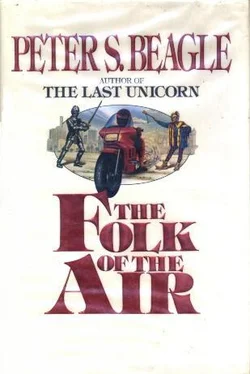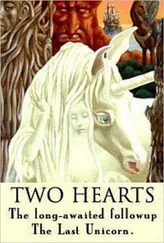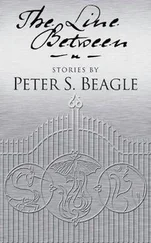Julie wanted to walk, so they strolled up two blocks to pay their respects to the Waverly Hotel. The Waverly was eighty-seven years old, and had looked just as strange in its own time as it did now. It was supposed to have been modeled after a Burgundian castle, and it did at least look more like a castle than like anything else in the world. There were round towers and square towers, dunce-cap turrets and Moorish arches and galleries, a functioning portcullis and a sally-port, a driveway approach in the form of a drawbridge, and a stone-flagged courtyard with parking stripes. It changed owners every few years, but was still quite popular with certain conventions.
On a clear night, the Waverly could be seen from Parnell Street—a great drowsy bubble, pink and purple and green, floating softly up out of the hills. Farrell and Julie walked with their arms around each other’s waists, leaning together, playing a favorite game of singing improbable combinations of songs in counterpoint. Farrell was chanting “ Il était une bergere ,” while Julie gleefully ravaged “ Good Morning, Little Schoolgirl .”
In front of the Waverly, they fell silent, standing under the portcullis and looking straight up into the marzipan radiance. Farrell saw only a scattering of cars in the parking lot and a few people clustered at a side door; but even so, the hotel seemed to resound and tremble with light, like an acacia in bee time. Julie said against his shoulder, “It would be lovely if you could give a concert here someday. You’d never have a better setting for the music.”
When he did not answer, she raised her head and looked at him curiously, saying, “Now that made you sad. I could feel it happen in you. What is it, Joe?”
“Nothing,” Farrell said. “I don’t really give concerts much these days, especially in the good settings. They just make the music feel more dead than it is, and I don’t need that. I already know.”
“Old buddy,” she said. “Childhood sweetheart, moon of my delight, I hate to hurt your feelings, but you aren’t exactly the only Renaissance musician in town. Since I moved back here, I’ve never seen so many classical guitarists, so many countertenors, so many little groups tootling away on their recorders every Tuesday night. You can’t throw a rock and not hit someone playing Dowland on a street corner. How can it all be dead, with everyone going at it like that?”
“Because that world’s gone,” Farrell said, “the world where people walked around whistling that music. All the madrigal singers in the world can’t make that other one real again. It’s like dinosaurs. We can put them back together perfectly, bone for bone, but we don’t know what they smelled like, what kind of sounds they made, or how big they really looked standing in the grass under all those fossil fern trees. Even the sunlight must have been different, and the wind. What can bones tell you about a kind of wind that doesn’t blow anymore?”
A cab turned in from the street, and they stepped aside to let it go by, bumping along the silly drawbridge. The driver looked dour and embarrassed. Julie said, “Worlds are perishable. Do you want people not to play Mozart because they can’t ever hear the music with the ears he meant it for?”
“I don’t mean it just like that,” Farrell began; and then, “No, by God, I think I do mean it like that. Music should be daily. They ought to stop playing a composer’s music as soon as the last one who knows what it means is gone. The last one who knew the noises. The stuff I play has hawkbells in it and mill wheels and pikes all grounding at once. Chamber pots being emptied out of the window, banks of oars rattling into the water. People screaming because the hangman’s just held up somebody’s heart for them to see. I can’t hear the noises, I just play the notes. Shouldn’t be allowed.”
Julie studied him sideways, frowning a little. She said, “People miss the whole thing about you, don’t they? You’re not really a compromising, adaptable type at all. You’re a bloody fanatic, Joe. You’re a purist.”
“No,” he said. “It’s like the trouble I have when I travel. Wherever I go, I always want to spend a lifetime there. Anywhere—Tashkent, Calabria, East Cicero. I always want to be born there and grow up and know everything about the place and be horribly ignorant and die. I don’t approve of flying visits. It’s the same thing with the music, I guess. Smells, noises. I know it’s dumb. Let’s go back to your place.”
Julie put her arm through his. Farrell could feel her sudden silent chuckle tugging at him like a kite. The almost-black eyes had turned golden and transparent in the flare of the Waverly. She said, “All right. Come on, I’ll take you where the noises are.”
At her house, she darted in and out of closets while he stood scratching his head; she foraged briskly through drawers and sea chests, tossing bright, soft garments behind her onto the bed. Farrell fingered in astonishment over a rising drift of tights and tunics, horned headdresses, and heavy painted hoods; long furred and scalloped gowns, split from high waist to hem, with bell-shaped sleeves, square shoes and shoes with curling tips, and stiff short cloaks like muletas . He tried on a tall, round-crowned hat, a sort of fur derby, and took it off again.
“I like costume parties,” he ventured at last, “but that isn’t really what I was talking about.”
Julie paused briefly, regarding him across the rainbow heaps with a familiar flash of affectionate irritation. “This isn’t costume,” she said. “This is clothing.” She tossed him a pair of hose with one leg striped vertically in black and white and the other plain white. “Try these on for a start.”
“Did you make all this stuff?” He sat down on the bed to take his shoes off, slightly damaging a hat like a Shriner mosque. “You have some expensive hobbies, love.”
Julie said, “It isn’t as extravagant as it looks. Most of the material is synthetic—I use terrycloth a lot and I’ve made things out of ordinary blanketing, outing flannel. There’s velvet, some silk and taffeta, some upholstery brocade. I use what I’ve got, unless people want to pay extra for something special. Rats, I don’t think I like those tights on you. Try the brown houppelande.”
“The brown what?” Julie indicated a high-necked gown, the full sleeves lined in black and the skirts held together in front by an enameled girdle. Dutifully struggling into the gown, he asked, “What people? Whom do you make these things for?”
“All will be revealed,” she told him in a hoarse gypsy whisper. She considered him abstractly as a design of folds and flows, shaking her head slowly. “It would do, but I don’t know. I hate to waste your legs. No.”
Eventually she decided on plain hose and a dark blue doublet embroidered with green and gold diamonds and fleurs-de-lis . The waist was tapered sharply, and the sleeves were split all the way up the inside of the arm. She gave him a pair of low, pointed shoes and a soft velvet cap and said happily, “You’re fun to dress. I could play with you all evening. Go look at yourself.”
Farrell stood before the mirror for a long time, not at all out of vanity, but only to make the acquaintance of the slender, burning stranger in the glass. Under the high cap, his face was younger than Farrell’s and differently made; the nose was longer, the eyesockets notably more arched, the forehead rounder, the wide mouth grown curiously shadowed and secretive, and the whole off-center cast of the face at once as unnervingly tranquil and as deeply, casually ready for violence as that of a knight on a tomb rubbing or an angel on a stained-glass window. Is that me? No, it’s the light in here, it’s the mirror, the mirror’s warped or something . Behind him he could see Julie undressing, her head back as she fumbled with a zipper. The man in the glass watched her, looking quickly back at Farrell now and then. Is that me? Do I want it to be me ?
Читать дальше












